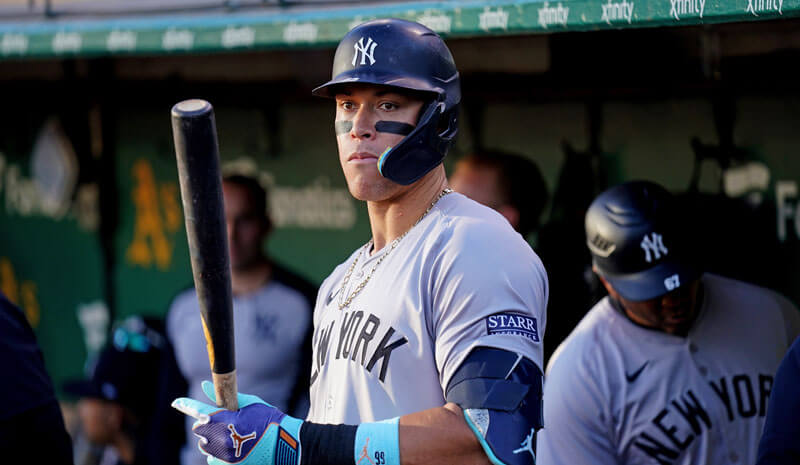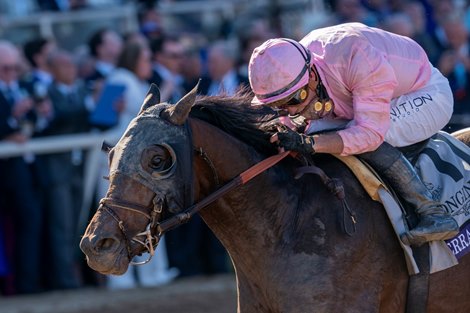

The comments from a regulator of what is the biggest competitive market for mobile sports wagering in the U.S. could be viewed as a warning to operators trying to figure out ways to lower their tax burden.
If DraftKings Inc. hadn’t already scrapped its plan to charge winning bettors a small fee in states with higher tax rates, there’s a non-zero chance New York regulators would have killed it anyway — at least in their backyard.
New York State Gaming Commission Chair Brian O’Dwyer said Monday that he “looked with great alarm” at DraftKings’ proposal for a “gaming tax surcharge” in four states, New York included.
DraftKings unveiled the planned fee on Aug. 1 — saying it would be “fairly nominal” and applied only to winning bets — and then killed the idea on Aug. 13 following customer feedback and decisions by its rivals not to follow suit.
DraftKings Statement on Gaming Tax Surcharge pic.twitter.com/cucbsQJIVD
— DraftKings News (@DraftKingsNews) August 13, 2024
Still, O’Dwyer sounded displeased that the idea (which he said in New York was “to implant a 20% surcharge on any payout of winning bets”) was floated in the first place.
The New York State Gaming Commission had said in August it was reviewing the planned fee, and its chair suggested Monday that it could have rejected the proposal outright.
“I view that proposal as both misleading and detrimental to the consumer,” O’Dwyer said during the regulator’s meeting. “I am, of course, pleased that the proposal has been withdrawn, and I remind all our licensees, however, that this commission is committed to protecting the consuming public, and that any proposal such as the one advanced by DraftKings will be a subject to the strictest scrutiny, and if appropriate, be rejected.”
O’Dwyer also noted that earlier in the meeting, the commission approved ESPN BET to offer online sports betting in New York.
“Obviously,” he added, “New York remains an attractive venue for those who are in the business of sports betting, and I see no reason why we should alter our present regulatory or taxing environment.”
You’ve been warned
The comments from a regulator of what is the biggest competitive market for mobile sports wagering in the U.S. could be viewed as a warning to operators trying to figure out ways to lower their tax burden.
New York’s 51% cut of online sportsbook revenue is one of the highest levies in the country, but O’Dwyer and the commission seem dead set on ensuring Empire State bettors are not getting squeezed in opaque or unfair ways due to the local tax rate.
The chair’s comments also suggest that New York regulators see no issues with the state’s 51% revenue share, especially when operators are still willing to enter the market. New York’s tax rate has generated hundreds of millions of dollars in education funding for the state, including more than $50 million since the start of the NFL’s regular season in September.
Now… if you tell bettors they’re going to pay an “Illinois Gaming Tax Surcharge,” which DraftKings is proposing to do, are most people going to think this is something imposed on them by the state or the operator? pic.twitter.com/PBL9B9c4TT
— Geoff Zochodne (@GeoffZochodne) August 2, 2024
Nevertheless, DraftKings, FanDuel, and other operators are mulling over their options after being jolted by a hike to the tax rate in Illinois, where they must now turn over as much as 40% of their revenue to the state.
Earlier this month, DraftKings CEO Jason Robins told a gaming conference that operators have refined their “playbook” for combating tax hikes. Robins also expanded on DraftKings’ decision to propose and then scrap the surcharge plan. He suggested there could be other solutions as well.
“I don’t think that, in perpetuity, it will make sense for anybody to completely just eat any tax increase that happens anywhere,” Robins said.
FanDuel’s parent company, Flutter, noted in updated guidance for 2024 that it expects a $50-million hit from the tax hike in Illinois, of which it expects to initially offset $10 million.
“We expect to directly mitigate 50% of the cost in 2025 through locally optimized promotional and marketing spend,” Flutter added in its second-quarter earnings release. “This is prior to second-order mitigation impacts such as in-state market share gains, which we have typically observed market leaders such as FanDuel to benefit from overtime when regulatory changes are introduced.”
No promo for you!
FanDuel’s plan, then, is for something a little less eye-catching than a surcharge.
Flutter CEO Peter Jackson has also said the company has a history of doing business in higher-tax jurisdictions, and that “our experience is that moderating levels of generosity or indeed reducing local marketing is the best response.”
Whether something along these lines would draw scrutiny from the NYSGC or another regulator remains to be seen.
At any rate, O’Dwyer said Monday that commission staff reviews potential New York sports betting markets each day and that the regulator has blocked “entire categories” of wagering for being inappropriate, such as its prohibition on college player props.
“It is our responsibility to protect the consumers in these transactions,” the chair said.







